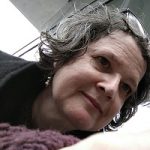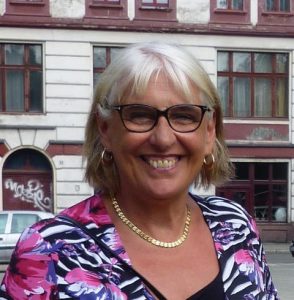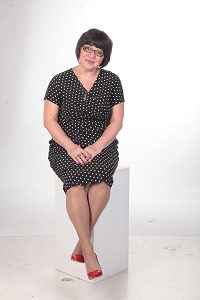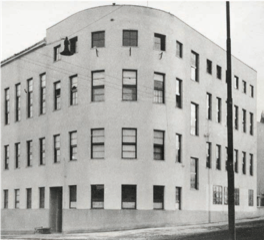The conference will begin at 10 am on Friday, 13 September 2019. Registration will open at 9 am. On Friday, Saturday and Sunday a variety of lectures, panel discussions and workshops will be offered. Shabbat services will take place on Friday evening and Saturday morning. The Conference will end after lunch on Sunday.
For those participants who will arrive on Thursday, an additional Jewish tour in the afternoon and an informal gathering in the evening will be organized.
Historical and contemporary perspectives on Jewish women in Yugoslavia and the former Yugoslav countries
- Western Balkans Women Holocaust Survivors
- Biljana Albahari: Narrative on the exhibition Turning over the Pages of Time: Jewish Periodicals in Serbia 1888–2016
- Martina Bitunjac: Jewish Women in the Yugoslav Resistance (1941 – 1945)
- Tamara Ivanović: Anti-Semitic decrees in Serbia 1941. Beginning of the Holocaust
- Ana Lebl and Danica Čigoja Piper: Ženi Lebl: a woman, a writer and an activist
- Ružica Mevorah: Jewish women in Serbia. As far from politics as they can get
- Maja Nikolova: The Role of Education and Society in the Emancipation of Jewish Women
- Svetlana Stefanović: The Interwar Women’s Rights Activist Paulina Lebl Albala and the Question of National Identity
Contemporary women’s perspectives on Jewish tradition
- Barbara Borts: Kol Isha: Women’s Voices in the 21st Century Synagogue – Accepted, Rejected, or Subjected
- Louise Hecht: Education through Jewish Prayers: From Fanny Neuda to Bertha Pappenhei
- Shulamit Reinharz: Tamar, the fifth (or eighth) matriarch?
- Deborah Williger: Purity and Kashrut
-
Sandi Wisenberg: Written in Blood: Seven Ways of Looking at the Mikvah, a reading/performance
Jewish Women’s History
- Susannah Heschel: Does Jewish History have a Gender?
- Vera Mevorah: Book presentation Markers of Memory: Jewish Heritage and the Holocaust
- Katalin Pécsi Pollner: How to Preserve the Past for the Future Generations – Collecting Personal Narratives of Shoah Survivors and the 2nd Generation
Modern Jewish education
- Anastasia Badder: Teacher as Researcher, Teacher as Learner
- Nada Banjanin Đuričić: What you do matters; Teaching/Learning about the Holocaust by Yad Vashem Principles
- Ruža Rudić Vranić: Open Space
- Haver Foundation and Haver Srbija: Presentation
Jewish Women in Arts and Literature
- Ruth E. Herzka, Nina Horvitz: Everything has its own time
- Joan Roth: Jewish Women. A World of Tradition and Change
- Anna Rozenfeld: Motherhood in Yiddish Poetry
- Myriam Tangi: Mehitza – Seen by Women
-
Myriam Tangi: The Last Jews of Yemen
Jewish Women in Politics / Activism
- Duška Dimović and Boris Erg: Environment and gender: Advocacy for vulnerable groups
-
Eveline Goodman-Thau: „Women make a difference“ – The contribution of Jewish women for an European Ethos in troubled times
- Sabine Kroissenbrunner: Promoting Female Leadership in inter-cultural and inter-religious dialogue
- Eleonore Lappin-Eppel: Alice Shalvi: Feminist, Educator and Peace Activist
- Tobe Levin Freifrau von Gleichen: Nashim – Jewish ethics and Jewish women in Germany as pioneers in the fight against FGM
- Zorica Mršević: Position of trans women in Serbia
- Tanya Ury: We are a small but steady and vociferous voice – loud and clear
- BeFem media production: Herione from the neighborhood
Panel Discussions
- Being Jewish (woman) in Serbia
- Western Balkans Women Holocaust Survivors
- Living Library -Intimate talk around life and struggles of minorities in Serbia
Workshops
- Tanja Berg: How can we develop our future Jewish feminist/ women’s actions? An interactive workshop to develop ideas
- Birgit E. Klein: Filling the Gaps – Writing Feminist Midrashim and (Liturgical) Poems
- Layla Zami Zuckerman, Oxana Chi: Being Present: A Language and Movement Workshop
Concerts and Performances
- Layla Zami Zuckerman. Oxana Chi: Moving Herstory: from Claude Cahun’s Historical Resistance to Oxana Chi’s Contemporary resistDance/Killjoy
- Shira U’Tfila: Concert
Exhibitions
- Edita Jankov, Goran Levi: The Synagogues in Vojvodina that no longer exist
- Jelena Kručičanin, Centropa: When Friends Help Friends
Walking Tours
- Jewish Tour of Belgrade (Thursday afternoon, Saturday 9:00-11:00 and 15:00-17:00)
- Jewish Cemetery Tour (Sunday 8:30-11:00)
**************************************
Panels
Being Jewish (woman) in Serbia
The panelists will share their thoughts, struggles and aspirations of contemporary Jewish life in Serbia.They also describe how they see themselves as women in community structures and society in general.
Western Balkans Women Holocaust Survivors
Meeting with Holocaust survivors that will share their memories and life stories about the pre-war family Jewish life, Holocaust and their life after the Holocaust.
Living Library – Intimate talk around life and struggles of minorities in Serbia
„The Living Library is a tool that seeks to challenge prejudice and discrimination. It works just like a normal library: visitors can browse the catalogue for the available titles, choose the book they want to read, and borrow it for a limited period. After reading, they return the book to the library and, if they want, borrow another. The only difference is that in the Living Library, books are people, and reading consists of a conversation.” (Councel of Europe)
Walking Tours
Jewish Tour of Belgrade
Led by Tamara Ivanović and Aleksandar Stojanović
The Jewish quarter was in the historic Dorcol neighborhood, near the Danube. It was a well-known trading center, with many markets and traders of different nationalities. Dorcol main street, Jevrejska Ulica (Jewish Street), still exists, though there is little specifically Jewish about the area today. The tour explores heritage sites and history of pre-war Jewish life.
Jewish Cemetery Tour
Led by Tamara Ivanović and Aleksandar Stojanović
Jewish cemetery covers the former Ashkenazi and Sephardi cemeteries. Gravestones bear inscriptions in several languages – Serbian, German, Hebrew, Ladino, and Hungarian as a testimony to the diversity of Serbian Jewry. There is an impressive Holocaust monument, erected in 1952 and designed by Bogdan Bogdanovic (who also designed the memorial at Jasenovic, Croatia), as well as earlier memorials to Jewish victims of the various Balkan Wars and the First World War. There is also a Geniza (buried cache of used sacred books and parchments) marked with a distinctive tombstone in a prominent place in the cemetery.
Performances & Concerts
Layla Zami Zuckerman. Oxana Chi: Moving Herstory: from Claude Cahun’s Historical Resistance to Oxana Chi’s Contemporary resistDance/Killjoy
 In this academic-artistic lecture-performance, Dr. Layla Zami and Oxana Chi explore the roles of the moving body in relation to the historical trauma of the Holocaust, present feminist realities and future possibilities. The talk presents the biography of the legendary feminist Jewish artist Claude Cahun, her collaboration with her wife Marcel Moore and their successful resistance against fascism. In an innovative lecture-performance format, the talk will be followed by a live performance dedicated to the Jewish artist Claude Cahun, and accompanied by an innovative soundtrack. Using her own body to perform an embodied archive of Claude Cahun, Oxana Chi moves through a variety of mediums, dance techniques, historical and cultural contexts, thus generating open and fluid threads of archives, which the audience may in turn connect in relation to their own experiences and knowledge. The presentation introduces Dr. Zami’s concept of perforMemory, and addresses questions of (in)visibility for female and LGBT narratives, absence and presence in Holocaust remembrance, resistance, war and trauma, and contemporary issues of racism and empowerment.
In this academic-artistic lecture-performance, Dr. Layla Zami and Oxana Chi explore the roles of the moving body in relation to the historical trauma of the Holocaust, present feminist realities and future possibilities. The talk presents the biography of the legendary feminist Jewish artist Claude Cahun, her collaboration with her wife Marcel Moore and their successful resistance against fascism. In an innovative lecture-performance format, the talk will be followed by a live performance dedicated to the Jewish artist Claude Cahun, and accompanied by an innovative soundtrack. Using her own body to perform an embodied archive of Claude Cahun, Oxana Chi moves through a variety of mediums, dance techniques, historical and cultural contexts, thus generating open and fluid threads of archives, which the audience may in turn connect in relation to their own experiences and knowledge. The presentation introduces Dr. Zami’s concept of perforMemory, and addresses questions of (in)visibility for female and LGBT narratives, absence and presence in Holocaust remembrance, resistance, war and trauma, and contemporary issues of racism and empowerment.
As a Resident Artist with Oxana Chi, Layla Zami creates and performs multi-instrumental music, poetry, theater and scholarship in dialogue with the choreography. The married duo presented and performed across the globe, and co-chaired the Moving Memory symposium (TU Berlin) and Moving Archives (The Center for the Humanities, NYC).
The performance Killjoy was originally commissioned by the Center for Transdisciplinary Gender Studies at Humboldt-University in Berlin. The lecture-performance toured several institutions including Center for German-Jewish Literature and Cultural History, Exile and Migration (Europa-University Viadrina), Schlosstheater Rheinsberg (DAGESH / ELES Kunstlab Opening), New York University, Technische Universität Berlin
Shira U’Tfila: Concert
Balkan Sephardic Music band from Belgrade. Founded by vocalist and oud player Stefan Sablic, Shira u’tfila brings together a multi-ethnic, multi-faith ensemble that draws its inspiration from the diversity and richness of Judeo- Spanish, Ottoman-Turkish, Arabic and Balkan musical traditions.
Spanish, Ottoman-Turkish, Arabic and Balkan musical traditions.
Shira u’tfila has released seven CDs, toured a dozen countries and collaborated on various research and production projects involving Sephardic music from the Balkans, Mediterranean and Middle East. The band passionately blends its knowledge of classical traditions and dedication to their preservation with a flair for improvisation and a talent for fusion. Its distinct sound brings a modern twist to an historical legacy.
Exhibitions
Edita Jankov, Goran Levi: The Synagogues in Vojvodina that no longer exist
Up until the Second World War, over seventy synagogues had been built all over Vojvodina. The Holocaust caused great tragedies. Most of the synagogues were demolished either during the war or soon after the liberation. This exhibition helps remembering and honouring them.
Edita Jankov has been taking an active part in the work of the Novi Sad Jewish Community over twenty years now. She has participated at several community leadership seminars and Judaism related conferences. Among various activities while leading the Women’s Club, one is worth distinguishing, which is being editor of a book comprising Jewish women’s life stories by using the oral history method. As a volunteer, she is in charge of cultural programs, which beside the community members, are also open to the citizens, offering various lectures, debates and film screenings mostly on Jewish topics. She worked jointly on this exhibition giving her contribution mainly while translating the catalogue.
Edita Jankov graduated from the Faculty of Philosophy at Novi Sad University and worked with Vojvodina TV at the Foreign Programs Department.
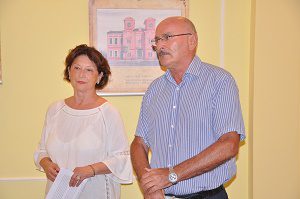 She is currently on the board at the Jewish Community in Novi Sad and holds the position of vice president.
She is currently on the board at the Jewish Community in Novi Sad and holds the position of vice president.
Goran Levi was born in Zagreb, in 1949. He attended primary school in Sarajevo and Belgrade. He graduated from Belgrade’s 14th High School and got his B.A. Sc. degree at the Mining and Geology Faculty at Belgrade University. He was employed for over 35 years with the former Nafta-Gas Oil Company in Novi Sad and the Oil Industry of Serbia.
Goran Levi was at the position of president of the Jewish Community in Novi Sad in two successive mandates, from 2010 until 2017. He is currently a board member at the community.
Jelena Kručičanin, Centropa: When Friends Help Friends
 The exhibition follows the activities of La Benevolencija, a local Jewish humanitarian organization in Bosnia and their activities during the ‘90s in Sarajevo. Paired with a 12 minutes film.
The exhibition follows the activities of La Benevolencija, a local Jewish humanitarian organization in Bosnia and their activities during the ‘90s in Sarajevo. Paired with a 12 minutes film.
Presentations & Workshops
BeFem media production: „Herione from the neighborhood“
 BeFem media production is focused in making short and documentary movies, podcasts and online campaigns about minorities who have lack of media knowledge and technical equipment to do so. With their production they tend to educate general audience to be more critical in their media consumption; to work for better balanced representation by educating and advocating media outlets in Serbia and to work on making feminist movement more inclusive by involving women from activists group and minority groups in a series of BeFem events.
BeFem media production is focused in making short and documentary movies, podcasts and online campaigns about minorities who have lack of media knowledge and technical equipment to do so. With their production they tend to educate general audience to be more critical in their media consumption; to work for better balanced representation by educating and advocating media outlets in Serbia and to work on making feminist movement more inclusive by involving women from activists group and minority groups in a series of BeFem events.
Since 2009 the BeFem Feminist Cultural Center has been debating and promoting feminist politics, culture and art through diverse programs such as festival, media production and education with a focus to empower, motivate and activate a new generation of feminists and civil right defenders in order to encourage exchanges and cooperation at local, regional and international levels. BeFem is a strategic meeting point for feminists from different parts of country and region where they can meet and learn about the issues that women and LGBTIQA+ people face in different parts of the country and world, but it is also a space where feminist activists and organizations from all around the region can present their work and connect and organize for joint advocacy and action.
Haver Foundation and Haver Srbija: Presentation
The interactive presentation will explore the work of Haver Foundation, Hungary and Haver Srbija, Serbia and the impact of the work of these NGOs both on Jewish community and on society in general. Through the session, we will explore a little bit of contemporary Hungarian and Serbian Jewish communities and why creating spaces for diverse communities to learn “Jewish stuff” together is important for continuation of our communities and for overcoming prejudice, discrimination and anti-Semitism in our societies.
Haver Foundation, Hungary and Haver Srbija are a non-profit and Jewish community organizations, active in the field of informal education and working in partnership with individuals, NGO-s and public institutions – mostly primary and high schools and institutions – to overcome prejudice, anti-Semitism and intolerance in Hungary and Serbia.
Biljana Albahari: Narrative on the exhibition Turning over the Pages of Time: Jewish Periodicals in Serbia 1888–2016
Except for a few highly important bibliographical sources, magazine articles and book chapters, there are no comprehensive retrospective reviews, and certainly no organised and exhaustive resources that would enable to determine and analysethe impact of Jewish Periodicals on the Jewish community of Serbia, or the society in which the Jews have lived in general. This presentation offers insights into the valuable material of Jewish periodicals. In addition, it will contribute to preserving the memory of a significant field of interest of the Jewish community of Serbia, which is also an essential part of Serbian history and society.
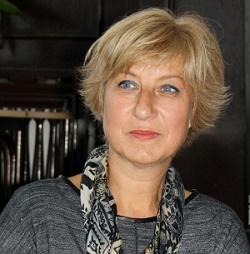 Biljana Albahari is from Sarajevo, where she graduated at the Department of Comparative Literature and Librarianship at the Faculty of Philosophy. Her final thesis was on the research of the Library of the Jewish Community in Sarajevo. Her professional interest relates to the promotion of the scientific work of researchers from Serbia, open access to scientific research as well as the researching of the cultural heritage of the Jewish national minority in Serbia.
Biljana Albahari is from Sarajevo, where she graduated at the Department of Comparative Literature and Librarianship at the Faculty of Philosophy. Her final thesis was on the research of the Library of the Jewish Community in Sarajevo. Her professional interest relates to the promotion of the scientific work of researchers from Serbia, open access to scientific research as well as the researching of the cultural heritage of the Jewish national minority in Serbia.
After finishing the training for archivists and librarians from Serbia, which was organized in YadVashemInternational School for Holocaust Studies in 2017, the field of her current and future interests is empowering Serbian librarians to better understand teaching and learning about the Holocaust in general, and the basics of the YadVashem educational philosophy in particular and to contribute to recognizing their own potential in creating and implementing educational and outreach programs based on their own materials and local history.
As an author, Biljana has had four books published as well as professional texts in journals and publications.
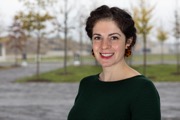 Anastasia Badder: Teacher as Researcher, Teacher as Learner
Anastasia Badder: Teacher as Researcher, Teacher as Learner
For the past two years, Anastasia Badder has been working on her PhD, on Jewish education. She is focusing on the question how children learn what it means to be Jewish. Her research has been centered on the Jewishcommunity in Luxembourg, and the international congregation of the progressive synagogue in southwest Luxembourg in particular. In her presentation Anastasia Badder will share her story and discuss how, through the classes she created, the students and her are at once engaged in the activity of consolidating community and accommodating difference.
Anastasia Badder is currently pursuing her PhD in Education in an interdisciplinary unit at the University of Luxembourg. Her project is centered on Jewishness and learning in Luxembourg.
Nada Banjanin Đuričić: What you do matters; Teaching/Learning about the Holocaust by Yad Vashem Principles
In her presentation, Nada will give an overview of her educational work in apublic school that concerns the Holocaust. She will present and discuss projects that she initiated with her students and explain how and why she teaches about the Holocaust in her school. She will reflect on teaching/learning methods, provide background information about historical educational tours and meetings related to the Holocaust in Serbia. In the presentation you will be able to hear about Nada’s recently published book What you do matters; Teaching/Learning About the Holocaust by Yad Vashem Principles which is dedicated to these learning methods and processes.
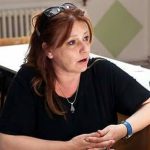 Nada Banjanin Đuričić graduated from the Sociology Department, Faculty of Philosophy at the University of Belgrade. She has 18 years of working experience as a teacher and mainly works with teenagers. Her fields of interest include child abuse and gender-based violence. She is a member of the Victimology Society of Serbia, the Centre for Public History (board member and one of the founders) as well as of the Association of Civic Education Teachers. She has completed several domestic and international seminars, including those held in Yad Vashem, Lublin (Majdanek, Belzec), USHMM Washington D.C., Krakow and Auschwitz. Also, she has organized several lectures and programs concerning the Holocaust as well as several commemorations on Holocaust Remembrance Day.
Nada Banjanin Đuričić graduated from the Sociology Department, Faculty of Philosophy at the University of Belgrade. She has 18 years of working experience as a teacher and mainly works with teenagers. Her fields of interest include child abuse and gender-based violence. She is a member of the Victimology Society of Serbia, the Centre for Public History (board member and one of the founders) as well as of the Association of Civic Education Teachers. She has completed several domestic and international seminars, including those held in Yad Vashem, Lublin (Majdanek, Belzec), USHMM Washington D.C., Krakow and Auschwitz. Also, she has organized several lectures and programs concerning the Holocaust as well as several commemorations on Holocaust Remembrance Day.
Tanja Berg: How can we develop our future Jewish feminist/ women’s actions? An interactive workshop to develop ideas
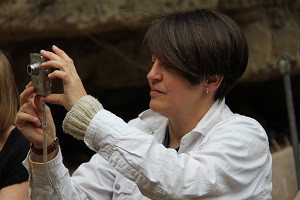 In this workshop we will discuss and hopefully develop different ideas of Jewish feminism. Jewish life is diverse and there is not only one way to be active, but as many as stars in the sky. We will work interactive and use different methods to help us exchange experiences and opinions.
In this workshop we will discuss and hopefully develop different ideas of Jewish feminism. Jewish life is diverse and there is not only one way to be active, but as many as stars in the sky. We will work interactive and use different methods to help us exchange experiences and opinions.
The workshop will offer a frame to get into debates about possible topics, activities and actions.
Tanja Berg has a degree in political science from the Freie Universität Berlin. At the NGO minor she works as a project manager on topics of democracy, civic education and gender. She has 20 years of experience in the field of civic education with children, youngsters and adults. Tanja is a member of the board of Bet Debora, has been active for many years in German-Israel youth exchange and in other grassroots.
Martina Bitunjac: Jewish Women in the Yugoslav Resistance (1941 – 1945)
The presentation seeks to explore the diverse involvement of Jewish women in the Yugoslav resistance. What were their roles and motives, which decisions did they make and how did this affect their common struggle? We will talk about Jewish women partisans like the fighter and national hero Estreja Ovadija, the lawyer Olga Alkalaj, the physicians Dr. Roza Papo and Dr. Zora Goldschmidt and the war photographer Elvira Kohn. Moreover, Martina will look at their everyday life as partisans and during the war.
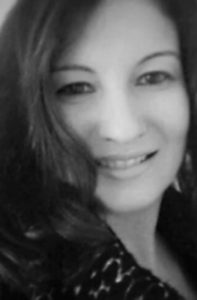 Martina Bitunjac Martina Bitunjac holds a Ph.D. in Modern History and in European History from the Humboldt-University of Berlin and the Sapienza-University of Rome. She is working as a researcher and is the managing editor of the Journal of Religious and Cultural Studies (Zeitschrift für Religions- und Geistesgeschichte) at the Moses Mendelssohn Center for European-Jewish Studies. Also, she teaches at the University of Potsdam. Her academic interests include gender studies, Jewish history, as well as the history of Southeast Europe.
Martina Bitunjac Martina Bitunjac holds a Ph.D. in Modern History and in European History from the Humboldt-University of Berlin and the Sapienza-University of Rome. She is working as a researcher and is the managing editor of the Journal of Religious and Cultural Studies (Zeitschrift für Religions- und Geistesgeschichte) at the Moses Mendelssohn Center for European-Jewish Studies. Also, she teaches at the University of Potsdam. Her academic interests include gender studies, Jewish history, as well as the history of Southeast Europe.
Barbara Borts: Kol Isha: Women’s Voices in the 21st Century Synagogue – Accepted, Rejected, or Subjected
Women in the progressive Jewish world have long since found their voices, and serve as lay leaders, rabbis, and chazzanot. And in some parts of the Orthodox Jewish world, women are also speaking and singing in public spaces long reserved for men. Through the stories of a few women, this session will examine the ways in which women’s voices are accepted, rejected, or subjected to some strictures when they are raised, in voice and in song, in the public Jewish realm.
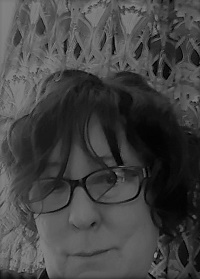 Rabbi Barbara Borts has served pulpits in the UK, the USA and Canada. She is an honorary research fellow in anthropology at Durham University and a research fellow of Leo Baeck College, as well as a half-complete BaalatTefilah through EAJL. She has written many articles and papers, recently researching Jews and Christmas, rabbinic roles, and the conundrum of women’s voices in Judaism. She is the co-editor, with Rabbi Elizabeth Tikvah Sarah, of Women Rabbis in the Pulpit: A Collection of Sermons. Her PhD work was on Anglo-Reform Judaism through the lens of its music.
Rabbi Barbara Borts has served pulpits in the UK, the USA and Canada. She is an honorary research fellow in anthropology at Durham University and a research fellow of Leo Baeck College, as well as a half-complete BaalatTefilah through EAJL. She has written many articles and papers, recently researching Jews and Christmas, rabbinic roles, and the conundrum of women’s voices in Judaism. She is the co-editor, with Rabbi Elizabeth Tikvah Sarah, of Women Rabbis in the Pulpit: A Collection of Sermons. Her PhD work was on Anglo-Reform Judaism through the lens of its music.
Duška Dimović and Boris Erg: Environment and gender: Advocacy for vulnerable groups
Gender considerations are intimately linked with, and are inseparable from environmental movements and initiatives. Often regarded as a vulnerable group themselves, women have emerged as agents for change and strong advocates for environmental justice.
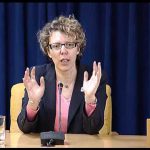 Duška Dimović is a biologist with a major in plant ecology, working in the field of nature conservation for more than 20 years. She worked at the Institute for Nature Conservation of Serbia and today she is a director of WWF in Serbia. She is an active member of the IUCN World Commission on Protected Areas (WCPA), a leading global expert network on protected areas, as well as a member of the Commission of the Republic of Serbia for UNESCO.
Duška Dimović is a biologist with a major in plant ecology, working in the field of nature conservation for more than 20 years. She worked at the Institute for Nature Conservation of Serbia and today she is a director of WWF in Serbia. She is an active member of the IUCN World Commission on Protected Areas (WCPA), a leading global expert network on protected areas, as well as a member of the Commission of the Republic of Serbia for UNESCO.
 Boris Erg is the director of the IUCN Regional Office for Eastern Europe and Central Asia (IUCN ECARO). His record includes nearly 20 years in nature conservation, working for international organizations, state agencies and civil society, including five years of fieldwork as a researcher and park manager.
Boris Erg is the director of the IUCN Regional Office for Eastern Europe and Central Asia (IUCN ECARO). His record includes nearly 20 years in nature conservation, working for international organizations, state agencies and civil society, including five years of fieldwork as a researcher and park manager.
Boris is a member of the IUCN Global Leadership Team and the Executive Committee of IUCN WCPA Transboundary Conservation Specialist Group. He is the co-author of several major global publications on transboundary cooperation and protected areas.
Eveline Goodman-Thau: „Women make a difference“ – The contribution of Jewish women for an European Ethos in troubled times.
From time immemorial women have been active in Jewish life, both in the religious and social realm.In modernity they were the ones who created new forms of learning and worship in spite of patriachical opposition they were innovators in all walks of life. In her talk Eveline will give an outline of Jewish women’s achievements and contributions from biblical times to modernity taking upon themselves not only the task of being mothers but of making a much needed „difference“ shaping not only Jewish life but society in general.In the present troubled times, in which Jewish women in former Communist countries after the recent devastating wars in the Balkan find themselves, struggling to find their own identity both as women, as Jews and as Europeans pose a great challenge which can possibly be a paradigm for a European Jewry at large in their search for an European Ethos.
 Eveline Goodman-Thau was the first female rabbi in Austria, a job she began in 2001.She was born in Vienna. Eveline survived the Holocaust by hiding with her family in the Netherlands. She was privately ordained in Jerusalem in October 2000 by Orthodox rabbi Jonathan Chipman. She later led the liberal Jewish community in Vienna for one year beginning in 2001. In 1999 she was the founding director of the Herman Cohen Academy for European Jewish Studies in Buchen, Odenwald, Germany.
Eveline Goodman-Thau was the first female rabbi in Austria, a job she began in 2001.She was born in Vienna. Eveline survived the Holocaust by hiding with her family in the Netherlands. She was privately ordained in Jerusalem in October 2000 by Orthodox rabbi Jonathan Chipman. She later led the liberal Jewish community in Vienna for one year beginning in 2001. In 1999 she was the founding director of the Herman Cohen Academy for European Jewish Studies in Buchen, Odenwald, Germany.
Louise Hecht: Education through Jewish Prayers: From Fanny Neuda to Bertha Pappenheim
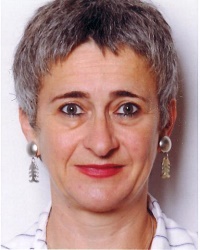 The presentation seeks to explore the reasons for Neuda’s success, relating it to a mix of religious conservatism and renewal as well as female sensitivity. Finally, Neuda’s prayer book will be compared to the intimate prayers of Bertha Pappenheim (1859-1936) that were published in 1935 and inspired the founding generation of Bet Debora.
The presentation seeks to explore the reasons for Neuda’s success, relating it to a mix of religious conservatism and renewal as well as female sensitivity. Finally, Neuda’s prayer book will be compared to the intimate prayers of Bertha Pappenheim (1859-1936) that were published in 1935 and inspired the founding generation of Bet Debora.
Dr. Louise Hecht studied Jewish studies, Spanish and German at the University of Vienna. She has a doctorate in Jewish History from the Hebrew University, Jerusalem. She has taught at various universities in Israel, Austria, and Germany. Since 2007 she has been Senior Lecturer in Jewish History and Israel Studies at the Kurt and Ursula Schubert Center of Jewish Studies, Palacký University, Olomouc. She was visiting professor at the Department of German Studies at the University of Pennsylvania. Today Louise is a senior researcher in Jewish Studies at the University of Potsdam.
Ruth E. Herzka, Nina Horvitz: Everything has its own time
Visual artist and art psychotherapist Ruth E. Herzka Ph.D. from Basel, Switzerland has her roots in Eastern Europe. Her family name originates from Transylvania, Rumania. After studying Psychology, Anthropology, and the Arts at the University of Zürich in Switzerland, she continued additional studies in teaching and art therapy at the University of Haifa, Israel. In her clinical work in Switzerland and Israel, and lectures at the University of Arts in Berlin and Köln, she continued to focus on an intercultural approach. As an artist and member of the union for female artists, Ruth E. Herzka took part in several exhibitions in Switzerland and abroad. Her focus with recollection and sensual memories based on textiles, painting and mixed media underpin her work. Her most current art project, «Everything has its own time», references to small wooden hand puppets created by her grandparents during their exile in the Swiss mountains at the time of the Shoah.
Nina Horvitz, independent curator currently based in Basel, Switzerland. Born in Houston, Texas, her family names origins are from the Czech Republic outside of the Prague area. She graduated with a BA in German Studies from the University of Texas at Austin and continued education in Linguistics at Ludwig Maximilian Universität in Munich, Germany. Previous to independent curating, her ten-year career involved interior architecture projects throughout Europe and the Middle East. She then pursued her International MBA and continuing education at Sotheby’s Institute of Art in London. Focusing on continuinghercareerwhere architecture and art converge, hercuratorialinterests lie in the construction, expressedbothphysically and socially, of contemporaneoussocieties in the 21st century.
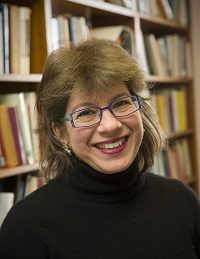 Susannah Heschel: Does Jewish History have a Gender?
Susannah Heschel: Does Jewish History have a Gender?
This presentation will focus on the historical background: how the field of Jewish history, which took shape in the 19th century in Germany, established the field as a masculine endeavor and presented both Jewish historical experience and the religion of Judaism in male-centered terms and using male gendered metaphors. It will also offer examples from contemporary scholarship, and recommendations for the future which would provide a more inclusive and accurate portrayal of Jewish history and religion.
Susannah Heschel is an American scholar and Eli Black professor of Jewish Studies at Dartmouth College. The author and editor of numerous books and articles, she is a Guggenheim Fellow and the recipient of numerous awards, including four honorary doctorates. Heschel’s scholarship focuses on Jewish and Christian interactions in Germany during the nineteenth and twentieth centuries.
Tamara Ivanović: Anti-Semitic decrees in Serbia 1941. Beginning of the Holocaust
The presentation will focus on anti-Semitic legislation from April 1941 until the end of that year. German Military Commander in Serbia sanctioned and imposed the vast majority of anti-Semitic decrees.They represented the introduction of the Nuremburg laws in the occupied Serbian territory. German and collaborationist authorities alike implemented anti-Semitic law, effectively 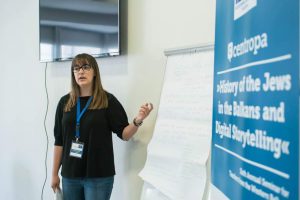 discriminating and dehumanizing Serbian Jews and setting the stage for Holocaust that followed.
discriminating and dehumanizing Serbian Jews and setting the stage for Holocaust that followed.
Tamara Ivanović graduated History from Faculty of Philosophy in Belgrade. She is an archivist at Archives of Yugoslavia, licensed tour guide and longtime associate of NGO Haver Srbija. Most of her academic interests are tied with Jewish studies and studies of the Holocaust/Shoa. For five years, Tamara is a volunteer of Haver Srbija and in the last two years, she has been appointed a coordinator of Haver Serbia’s volunteers. Currently she is finishing her MA studies of History at Belgrade University.
Birgit E. Klein: Filling the Gaps – Writing Feminist Midrashim and (Liturgical) Poems
In classical rabbinic literature, midrashim fill the gaps which are left open in the Torah and thus raise questions, for example: What did Sarah think about Abraham’s willingness to offer her son? How could Jochebed leave Moses with the Pharaoh’s daughter? What did Miriam do during the seven days when she was excluded from the camp? In the workshop Birgit will present midrashim answering these questions in order to initiate the creative writing of the participants. Thus, the workshop will not only reflect “contemporary women’s perspectives on Jewish tradition” but also create new Jewish traditions.
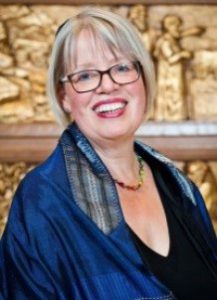 Rabbi Birgit E. Klein holds the chair for the “History of the Jewish People” at the Hochschule fuer Juedische Studien Heidelberg since 2006. Her teaching and research focus on the social and religious history and on Gender Studies. After rabbinical studies at the Reconstructionist Rabbinical College in Wyncote (near Philadelphia, USA) from 2014-2017, she was ordained as a rabbi in 2017. She served as a rabbi of the Liberal community in Strasbourg (France) and other congregations.
Rabbi Birgit E. Klein holds the chair for the “History of the Jewish People” at the Hochschule fuer Juedische Studien Heidelberg since 2006. Her teaching and research focus on the social and religious history and on Gender Studies. After rabbinical studies at the Reconstructionist Rabbinical College in Wyncote (near Philadelphia, USA) from 2014-2017, she was ordained as a rabbi in 2017. She served as a rabbi of the Liberal community in Strasbourg (France) and other congregations.
Sabine Kroissenbrunner: Promoting Female Leadership in inter-cultural and inter-religious dialogue
Sabine Kroissenbrunner is a political scientist and holds degrees from the University of Vienna and the School of Oriental and African Studies, London. She has worked as a researcher, consultant and mediator, taught at the University of Vienna, the Middle Eastern Technical University in Ankara and has published on issues such as: political conflict resolution and mediation, inter-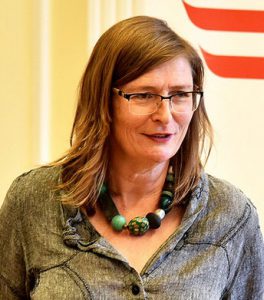 religious and inter-cultural dialogue, religion and migration (from Turkey, the Balkans and the Middle East), socio-political organization of migrants in
religious and inter-cultural dialogue, religion and migration (from Turkey, the Balkans and the Middle East), socio-political organization of migrants in
Europa and Austria. In the Austrian civil service, she served as the EU-advisor for the Minister of Women’s Affairs and later joined the Austrian Foreign Ministry. Having served in Berlin and Ankara before, she has been posted to Belgrade in 2015 as Deputy Head of Mission. In 2007, she founded and was Head of the Task Force for Dialogue of Cultures and Religions at the Austrian Ministry for Europe, Integration and Foreign Affairs. In that capacity and beyond she has initiated international and local projects serving inter-cultural, inter-religious and political dialogue purposes with a focus on sustainability and the role and leadership of women in these processes. She has been active since on theoretical and practical parameters of dialogue and mediation, especially in the context of Europe, Turkey and the Middle East.
Eleonore Lappin-Eppel: Alice Shalvi: Feminist, Educator and Peace Activist
The talk will be based on the autobiography of Alice Shalvi that was published this year. Eleonore will present an input and initiate a discussion around some of the key issues of Shalvi’s life work namely women’s rights and the position of women in traditional Judaism, women’s advocacy and the Israeli peace movement.
is a historian living in Vienna. She is a staff member at the Austrian Academy of Sciences where she directs the Project: „Jewish Responses to the Holocaust in Austria: A Source Edition“.
She is founding member and Vize President of the Jewish liberal Community, Or Chadash in Vienna and Chairwoman of New Israel Fund Austria. Eleonore has organized several Bet Debora Conferences and is member of the Board.
Ana Lebl and Danica Čigoja Piper: Ženi Lebl: a woman, a writer and an activist
This conversation will take us into Ženi Lebl’s life and her complex contribution to the 20th century Yugoslavian society. Ženi Lebl was a writer and an activist in both the Yugoslavian and the Israeli cultural context. Her life and writing had a great impact on Jewish women, and the literary communities she contributed to. This conversation will uncover multiple perspectives on Ženi Lebl’s life from within the family, and through her writing.
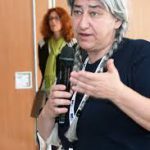 Ana Lebl holds a BA in Near Eastern Archaeology from the University of Belgrade (Serbia) and an MLitt from the St Andrews University (Scotland, UK) in Maritime Archaeology. She lives in Split, Croatia with a husband and two daughters. Ana has been President of the Jewish Community of Split. As a Jewish volunteer and lay leader, she dedicates most of her time to organizing cultural, religious and educational events, programs and seminars. Ana also promotes interfaith and intercultural dialogue in her city.
Ana Lebl holds a BA in Near Eastern Archaeology from the University of Belgrade (Serbia) and an MLitt from the St Andrews University (Scotland, UK) in Maritime Archaeology. She lives in Split, Croatia with a husband and two daughters. Ana has been President of the Jewish Community of Split. As a Jewish volunteer and lay leader, she dedicates most of her time to organizing cultural, religious and educational events, programs and seminars. Ana also promotes interfaith and intercultural dialogue in her city.
Danica Čigoja Piper completed BA and MA in Communication studies, which was followed by her PhD research defended at the Department of Journalism, at Faculty of Political Sciences in Belgrade. Currently she is teaching at the Faculty of Media and Communication as an Assistant professor. She published numerous papers in the fields of media studies, culture studies and communication studies. She also works as a journalist.
Tobe Levin Freifrau von Gleichen: Nashim – Jewish ethics and Jewish women in Germany as pioneers in the fight against FGM
In the most recent Nashim, Tobe published a paper The German Movement against Female Genital Mutilation and Four Jewish Foremother where she explored the possible connection between Judaism and activism on the human rights abuse of FGM in light of Jewish ethics that may be retrospectively read back into the engagement of these four pioneers not only in Germany (though there as well) but globally.
In this talk I will address the work of these ‘foremothers’ and introduce other Jewish women whose efforts to end FGM inspire others.
 Tobe Levin Freifrau von Gleichen: Visiting Professor, King’s College, University of London; Associate of the Hutchins Center for African and African American Research at Harvard University (since 2006); Visiting Research Fellow at Lady Margaret Hall, University of Oxford (2014-2016) and Collegiate Professor emerita, University of Maryland UC in Europe, Tobe Levin, Ph.D.(Cornell University) is a multi-lingual educator, translator, publisher, author and activist
Tobe Levin Freifrau von Gleichen: Visiting Professor, King’s College, University of London; Associate of the Hutchins Center for African and African American Research at Harvard University (since 2006); Visiting Research Fellow at Lady Margaret Hall, University of Oxford (2014-2016) and Collegiate Professor emerita, University of Maryland UC in Europe, Tobe Levin, Ph.D.(Cornell University) is a multi-lingual educator, translator, publisher, author and activist
Ružica Mevorah: Jewish women in Serbia. As far from politics as they can get
For different reasons, Jewish women in Serbia always stayed away from politics and public political roles. The presentation will try to explain this fact by asking the right questions that might yield some interesting answers. Jewish women in Serbia made an impact in art, education and the health system. Some of them pursued prominent university careers, but they consciously tried to avoidpublic perception and never openly revealed their Jewish identity.
Ružica Mevorah, psychologist by degree, worked as such for only a few years before pursuing a career as a journalist that now lasts for almost 40 years – the first seven years in political journalism and, after that, as far from it as she could get. Unfortunately, always close enough to feel it on her skin, since politics is everything in this part of Europe. During her carrier, she founded more than 30 magazines. For almost 20 years, up until her forced retirement, she worked for Ringier Axel Springer (RAS), a privately owned publishing house. In RAS she was an editor and for eleven years editor in chief of Blicžena, a weekly magazine that sold up to 300.000 copies a week and was, by far, the bestselling paper in the region as well as the bestselling paper in all countries in which RAS does business.
Vera Mevorah: Book presentation Markers of Memory: Jewish Heritage and the Holocaust
The book „Graničnici sećanja: Jevrejsko nasleđe i Holokaust“ (Markers of Memory: Jewish Heritage and the Holocaust) is a result of a joint work by 19 scientists and experts from Serbia, France and the Netherlands in a field of culture, history, museology, art, education and Holocaust. The book covers the key questions related to the Holocaust more than 70 years after the end of World War II: How do the society and the state treat Holocaust memory in Serbia and the region, Poland, France and the US? What is the relationship between the Holocaust and Jewish cultural and historical heritage today? How do museums and memorials treat the Holocaust memory? What is teaching about the Holocaust and its significance?
Vera Mevorah has an MA in Music Performance, PhD in Art and Media Theory and holds a title of Research Associate in the field of Cultural Studies and Drama Art. Her PhD thesis is a pioneer study of Internet and 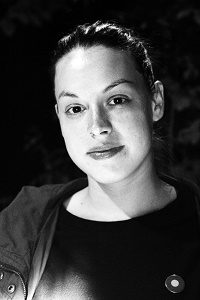 art in Serbia. She has published papers in local academic journals and has participated in academic conferences and projects. Her research interests include art theory, new media, Internet, digital humanities, new musicology, Holocaust studies and post-colonialism. She is a collaborator of NGOs Haver Serbia, Center for Holocaust Research and Education and Terraforming Network. She is the co-editor of collection of scientific and expert papers Markers of Memory: Jewish Heritage and the Holocaust and one of the authors of the book Portraits and Memories of the Jewish Communities in Serbia before the Holocaust: Handbook for Teachers. She has been an activist in the Jewish community in Serbia and the SEE region, working in the field of informal education for more than 15 years. Vera works as independent researcher, freelance translator and music teacher.
art in Serbia. She has published papers in local academic journals and has participated in academic conferences and projects. Her research interests include art theory, new media, Internet, digital humanities, new musicology, Holocaust studies and post-colonialism. She is a collaborator of NGOs Haver Serbia, Center for Holocaust Research and Education and Terraforming Network. She is the co-editor of collection of scientific and expert papers Markers of Memory: Jewish Heritage and the Holocaust and one of the authors of the book Portraits and Memories of the Jewish Communities in Serbia before the Holocaust: Handbook for Teachers. She has been an activist in the Jewish community in Serbia and the SEE region, working in the field of informal education for more than 15 years. Vera works as independent researcher, freelance translator and music teacher.
Zorica Mršević: Position of trans women in Serbia
Accepting of differences among people is still difficult in some parts of the Serbian society. Although many intellectuals in Serbia, take pride in their tolerance for people of different religions or different ethnicities, some minority groups, specifically the Roma, sometimes Jews too, people of different sexual orientation and gender identity often are excluded as the stereotypical “other”. Thus, there is the still unmet need to protect all people, including transgender people, from discrimination, violence, different forms of victimization, and other impacts of neglecting gender identity.
Zorica Mršević currently works as a senior research fellow at the Institute of Social Sciences in Belgrade. She graduated at the Faculty of Law of the University of Belgrade where she also obtained her PhD. She has been working in the Institute for Criminological and Sociological Research, was gender advisor of the OSCE Mission to Serbia for Gender Equality and the deputy of the Republican ombudsman mandated for gender equality and the rights of persons with disabilities. She has taught at various universities,and isauthored of 24 books and over 400 scientific papers from the field of theory of human rights of the marginalized groups, violence, gender equality, criminology, inclusive security.
Maja Nikolova: The Role of Education and Society in the Emancipation of Jewish Women
Education was an important step in the personal emancipation ofJewish women and in the modernization process oftheir society.Women’s liberation depended on their becoming educated and respected citizens during the second half of the nineteenthcentury. Fostering language and tradition, the Jewish school in Belgradecontributed to raising the educational level of the Jews in Belgrade, especially in the case of women,and contributed to changing attitudes towards women and their position in family and society.
Maja Nikolova graduated from the Faculty of Philosophy in Belgrade – Group for Pedagogy where she also got her MA. She worked as a curator at the Educational Museum and is currently employed as a museum adviser. Maja collected and composed archival documents and photos that connect to the history of personal and public education Serbia and among Serbian people abroad. She is also an author of numerous exhibitions and papers concerning the history of schooling in Serbia.
Katalin Pécsi Pollner: How to Preserve the Past for the Future Generations – Collecting Personal Narratives of Shoah Survivors and the 2nd Generation
Katalin Pescsi will demonstrate how she emphasized the specific women’s narrativesin her two anthologies of Untold Stories by Jewish Women; via herinterviews with 54 Hungarian Zionist Women,helpers and rescuers of fellow Jews, and in a travelling exhibition which presents the personal stories of Hungarian women who survived the Holocaust.
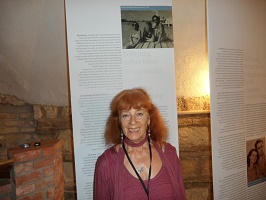 Katalin Pécsi-Pollner Ph.D. is a lecturer and essayist in contemporary Jewish literature and Holocaust Studies. She is an ICJW (International Council of Jewish Women) Executive member and founder and president of the Hungarian ICJW affiliate, Esthers’House Association in Budapest, which focuses on contemporary Jewish culture and feminist values.
Katalin Pécsi-Pollner Ph.D. is a lecturer and essayist in contemporary Jewish literature and Holocaust Studies. She is an ICJW (International Council of Jewish Women) Executive member and founder and president of the Hungarian ICJW affiliate, Esthers’House Association in Budapest, which focuses on contemporary Jewish culture and feminist values.
Shulamit Reinharz: Tamar, the fifth (or eighth) matriarch?
Both traditional sources and contemporary Jewish feminist scholarship have engaged the question of “who is a matriarch.” My interest in Tamar extends the debate about Zilpah and Bilha. Tamar married into the tribe of Judah, the fourth son of Leah and Jacob, and strove to produce a child. Her eventual success led to the future birth of David, certainly “a son of distinction.” By making the case for Tamar’s inclusion as a matriarch, I hope to contribute to the larger discussion of women’s roles in the Bible.
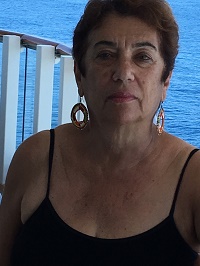 Shulamit Reinharz, Ph.D., is the Jacob Potofsky Professor Emerita of Sociology from Brandeis University. I retired in July 2017. I served as head of the Brandeis Women’s Studies Program from 1990-2000, during which time I created the first graduate program in Jewish Women’s Studies. In 1997, I created the Hadassah-Brandeis Institute whose mission is to develop new ways of thinking about Jews and gender worldwide. In 2001, I founded the Brandeis Women’s Studies Research Center. The same year I opened the Kniznick Gallery for Feminist art. In 2017, I was a research scholar at International Gender Studies at Oxford University. A 3-issue Festschrift in my honor was published in Nashim. I am the author of numerous books and articles, including Feminist Methods in Social Research (Oxford) and research on Jewish women in the history of Israel.
Shulamit Reinharz, Ph.D., is the Jacob Potofsky Professor Emerita of Sociology from Brandeis University. I retired in July 2017. I served as head of the Brandeis Women’s Studies Program from 1990-2000, during which time I created the first graduate program in Jewish Women’s Studies. In 1997, I created the Hadassah-Brandeis Institute whose mission is to develop new ways of thinking about Jews and gender worldwide. In 2001, I founded the Brandeis Women’s Studies Research Center. The same year I opened the Kniznick Gallery for Feminist art. In 2017, I was a research scholar at International Gender Studies at Oxford University. A 3-issue Festschrift in my honor was published in Nashim. I am the author of numerous books and articles, including Feminist Methods in Social Research (Oxford) and research on Jewish women in the history of Israel.
Joan Roth: Jewish Women. A World of Tradition and Change
The journey for Joan began in NYC, August 26th, 1970, while she was participating in the first women’s annual march down Fifth Avenue, led by Betty Friedan and Bella Abzug, second-wave feminist leaders, who broke new ground by exploring the idea of women finding personal fulfillment outside their traditional roles. Continuing with photographing Ethiopian Jews, Joan set out to capture images of Jewish women in their homelands around the world, from Eastern Europe to the Middle East and Africa. The focus of presentation will be around Joan’s lifetime adventures to uncover the heart and soul of Jewish womanhood, previously unfamiliar (not seen before) to her, as well as, perhaps, to others.
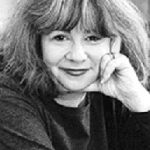 Joan Roth is an internationally acclaimed portraitist and American social documentarian based in New York City. Her powerful visual portrayals of the universal strength and beauty of Feminist activists, women who are homeless, Jewish women, Ethiopian Jews, and other subjects, as they exist, influence, and are influenced by a variety of cultural surroundings. From Ethiopia to Yemen, India and Israel, and back to the streets of New York – Roth’s remarkable life and photographic odyssey is a celebration of the strength of women around the world. She hopes that her work will allow people to see themselves as the mirror to one another.
Joan Roth is an internationally acclaimed portraitist and American social documentarian based in New York City. Her powerful visual portrayals of the universal strength and beauty of Feminist activists, women who are homeless, Jewish women, Ethiopian Jews, and other subjects, as they exist, influence, and are influenced by a variety of cultural surroundings. From Ethiopia to Yemen, India and Israel, and back to the streets of New York – Roth’s remarkable life and photographic odyssey is a celebration of the strength of women around the world. She hopes that her work will allow people to see themselves as the mirror to one another.
Anna Rozenfeld: Motherhood in Yiddish Poetry
Women Yiddish poets, often being mothers themselves, merged motherhood and their creative work. They wrote in mame-loshn about their various feelings and experiences related to the birth and upbringing of children, their boundless love and their dilemmas. The presentation will be illustrated with selected poems and focus on Women-Yiddish-Poets bringing up the topic of motherhood in their poems.
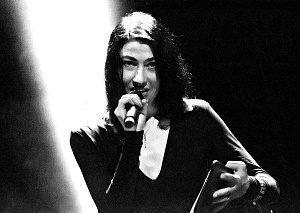 Anna Rozenfeld is a researcher of Jewish history, Yiddish language and culture, a painter and an actress; translator and language instructor of Yiddish. Co-founder of theִ „ייִדישלעבט” project (“yidishlebt,” / “Yiddish is Alive”), she is deeply engaged in preserving and promoting the Yiddish culture in both today’s Poland and abroad.
Anna Rozenfeld is a researcher of Jewish history, Yiddish language and culture, a painter and an actress; translator and language instructor of Yiddish. Co-founder of theִ „ייִדישלעבט” project (“yidishlebt,” / “Yiddish is Alive”), she is deeply engaged in preserving and promoting the Yiddish culture in both today’s Poland and abroad.
Ruža Rudić Vranić: Open Space
Open Space Technology is a meeting methodology that harnesses the collective knowledge of a group, team or organization. It is designed to address dilemmas and find answers to complex problems. Also, it is a powerful tool for engaging large and small groups of people in discussions to explore particular questions or issues. Join us in initiating and discussing issues that you find important and pressing for Jewish woman today.
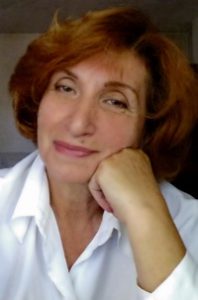 Ruža Rudić Vranić (ex Rosenfeld) has a 45 yearlong working carrier which is a unique combination of experience and knowledge as Interior designer-free lancer, private entrepreneur and civic activist. Ruža is a co-founder of Gender studies in her home town Subotica, and the founder of Association for the Economic Empowerment of Women FEMINA CREATIVA. (2000 ). She is Gender Equality expert specialized in Gender and Development, particularly in the field of integration of gender equality to strategic programs and planning. She is a Certified trainer for Gender&Development and licensed facilitator for the Open Space Technology. Today, Ruža volunteers in her local Jewish community as a coordinator of cultural life of the Community.
Ruža Rudić Vranić (ex Rosenfeld) has a 45 yearlong working carrier which is a unique combination of experience and knowledge as Interior designer-free lancer, private entrepreneur and civic activist. Ruža is a co-founder of Gender studies in her home town Subotica, and the founder of Association for the Economic Empowerment of Women FEMINA CREATIVA. (2000 ). She is Gender Equality expert specialized in Gender and Development, particularly in the field of integration of gender equality to strategic programs and planning. She is a Certified trainer for Gender&Development and licensed facilitator for the Open Space Technology. Today, Ruža volunteers in her local Jewish community as a coordinator of cultural life of the Community.
Svetlana Stefanović: The Interwar Women’s Rights Activist Paulina Lebl Albala and the Question of National Identity
Paulina Lebl Albala played an important role in formulating the goals and tasks of the Society for Women’s Enlightenment and Protection of Their Rights – the Women’s Movement (founded in 1919) and in establishing the Yugoslav Association of University-Educated Women in 1927, in Belgrade. The Association worked on the affirmation of academically educated women and advocated the cooperation of intellectuals from all Balkan states. Presentation will explore the role of Jewish women in Serbia at the turn of the 20th century and in the interwar Yugoslavia, their patriotic engagement and national identity based on Paulina LeblAlbala’s memoirs.
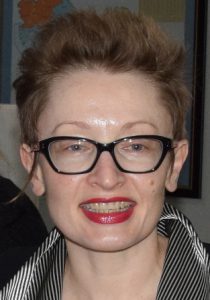 Svetlana Stefanović majored in history and received an MS at the University of Belgrade, defending her thesis The woman question in Belgradeʼs press and periodicals 1918–1941. She defended a dissertation Nation and gender: Women in Serbia from the mid-nineteenth century until World War II at the University of Leipzig. She is the author of articles published in academic journals and conference proceedings. Her research focus includes women’s history and gender. Svetlana is currently working at the Archives of Yugoslavia.
Svetlana Stefanović majored in history and received an MS at the University of Belgrade, defending her thesis The woman question in Belgradeʼs press and periodicals 1918–1941. She defended a dissertation Nation and gender: Women in Serbia from the mid-nineteenth century until World War II at the University of Leipzig. She is the author of articles published in academic journals and conference proceedings. Her research focus includes women’s history and gender. Svetlana is currently working at the Archives of Yugoslavia.
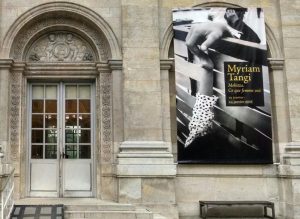 Myriam Tangi: Mehitza – Seen by Women
Myriam Tangi: Mehitza – Seen by Women
When Myriam started her photographic essay Mehitza – Seen by Women, she was well aware andenthusiastic about being a woman photographer in a Jewish sacred space. Mehitza offers a new perspective on and contribution to studies of religion and genderby questioning male and female territories while unveiling another layer of the complexity ofcontemporary Judaism.
Myriam Tangi: The Last Jews of Yemen
Few foreigners were travelling in Yemen in the 1980s’. Far from modernity, Yemen gave them the impression of traveling to biblical times, living to the rhythm of the afternoons spent chewing qat leaves. The Jews of Yemen are one of the most ancient Jewish communities in diaspora. Through photographs that Myriam captured during her trip, you will dive into the history and culture of this very unique Jewish community.
 Myriam Tangi was born, works and lives in Paris. In her works she explored many different aspects of her identity through photography, painting and poetry. “When I started my photographic essay ‘Mehitza – Seen by Women’, I was well aware and enthusiastic about being a woman photographer in a Jewish sacred space. Few women have dared enter the inner workings of a synagogue. It was revelatory to me and perhaps revolutionary to worshippers to dare to take a camera into the inner-sanctum of women’s devotion.”
Myriam Tangi was born, works and lives in Paris. In her works she explored many different aspects of her identity through photography, painting and poetry. “When I started my photographic essay ‘Mehitza – Seen by Women’, I was well aware and enthusiastic about being a woman photographer in a Jewish sacred space. Few women have dared enter the inner workings of a synagogue. It was revelatory to me and perhaps revolutionary to worshippers to dare to take a camera into the inner-sanctum of women’s devotion.”
Tanya Ury: We are a small but steady and vociferous voice – loud and clear
Many JS members are Israelis who have personally witnessed the unjust treatment of Palestinians at the hands of Israel’s government and its unfair policies. We are united as a voice, because we are Jewish – while Israel claims to speak for us, we have to say: “Not in our Name!”, and because we feel we cannot witness the disregard of human rights of Palestinians in Palestine without being moved to speak out. We are a small but steady and vociferous voice – loud and clear.
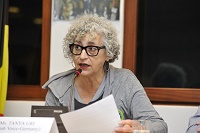 Tanya Ury is a British-German artist and writer. She studied for a Bachelor in Fine Art at Exeter College of Art and Design and 1 semester at the Institute for Theatre, Film and Television Studies, Cologne University. She graduated from Reading University with a Masters in Fine Arts. As a writer, activist, and in her photography, installations, performance, videos, poems and improvised poetry, Ury deals with questions of Judeo-German identity, the handling of German society with its history, the role of the subaltern women against a background of migration and racism. In recent years, she has often spoken and published articles calling on equal rights for Palestinians in Palestine/Israel.
Tanya Ury is a British-German artist and writer. She studied for a Bachelor in Fine Art at Exeter College of Art and Design and 1 semester at the Institute for Theatre, Film and Television Studies, Cologne University. She graduated from Reading University with a Masters in Fine Arts. As a writer, activist, and in her photography, installations, performance, videos, poems and improvised poetry, Ury deals with questions of Judeo-German identity, the handling of German society with its history, the role of the subaltern women against a background of migration and racism. In recent years, she has often spoken and published articles calling on equal rights for Palestinians in Palestine/Israel.
Deborah Williger: Purity and Kashrut
The sustainability of natural resources is an important topic of the Halakah and the Kosher kitchen. Many people nowadays criticize and oppose globalization, nutrition imperialism and universality with good cause. Most people in the western world nevertheless still prefer all kinds of kitchen cultures from foreign countries. Due to tradition the Kosher kitchen offers particularly elaborate vegan and vegetarian components and has become fashionable even in non-Jewish circles. Hopefully, via nutrition the bond between foreign nations and cultures can be tightened. Instead of fighting against each other, traditionalist and critical minds should realize their common aim to save the planet and unite to fight for it more efficiently.
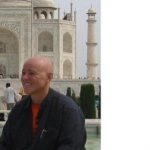 Deborah Williger received her PhD in agricultural sciences with special expertise in milk cows from the university Kiel and her Master of Science in International Agricultural Development from the TU Berlin. She worked in Germany, Austria and India, as estate manager of an organic farm, consultant for rural agricultural development, in product management, as well as to control genetically modified feed for life stock. Switching careers, she received her MA in Jewish Theology from the University of Potsdam and currently serves as lecturer and member of the Board of the Institute of Theological Zoology, ITZ, at the Philosophisch-Theologische Hochschule Münster.
Deborah Williger received her PhD in agricultural sciences with special expertise in milk cows from the university Kiel and her Master of Science in International Agricultural Development from the TU Berlin. She worked in Germany, Austria and India, as estate manager of an organic farm, consultant for rural agricultural development, in product management, as well as to control genetically modified feed for life stock. Switching careers, she received her MA in Jewish Theology from the University of Potsdam and currently serves as lecturer and member of the Board of the Institute of Theological Zoology, ITZ, at the Philosophisch-Theologische Hochschule Münster.
Sandi Wisenberg: Written in Blood: Seven Ways of Looking at the Mikvah, a reading/performance
This piece looks at the mikvah ritual, from its biblical origins through pre-modern and modern practice through contemporary modifications. The mikvah separates clean and unclean. Should we tolerate the notion of women as unclean? In the past few decades women have seized the ritual and reshaped it according to their own needs. They’ve use the water ritual as a way to mark divorce, the beginning of menopause, the end of cancer treatment. Can it ever be separated from its origins and be truly feminist? Should we be thinking further—of more radical new rituals to reflect our values and life-cycle events? What if we concentrated on the blood and not water? What if we refused to consider ourselves unclean? What have women performance artists done that could help us re-think the mikvah? Sandi Wisenberg will perform these questions and involve participants in a consideration of what has been meaningful in the past and what might make meaningful new rituals.
Layla Zami Zuckerman, Oxana Chi: Being Present: A Language and Movement Workshop
What does it mean to be present in history and in our body? The workshop starts with a discussion about the lectureperformance. We will talk about the presence and absence of Jewish women in memory discourses and practices. We will continue with a creative writing exercise on the topic of memory and translation. The workshop also includes some easy movement and breathing practice. Participants gain an embodied reflection on the topic of the conference. Everyone is welcome to attend, regardless of your age. No movement experience needed, just bring your body.Pens and paper will be provided.
Layla Zami is an interdisciplinary academic and artist of Jewish-German-Russian and Afro-Indian-Caribbean descent. Based in New York, she is Visiting Assistant Professor of Humanities and Media Studies at Pratt Institute. Zami obtained a magna cum laude PhD from the Center for Transdisciplinary Gender Studies at Humboldt-University in Berlin, where she also earned the Teaching Award First Prize (Fakultätspreis für gute Lehre) for her course Performing Memory. She received a Doctoral Fellowship from the BMBF/ELES Scholarship Fund, and a stipend from the Stiftung Zurückgeben for Jewish Women in Arts and Science, for her participation in the exhibition Tanzende Erinnerungen curated by Oxana Chi. www.laylazami.net
Oxana Chi is a German choreographer, dancer, filmmaker, curator, author and mentor of Eastern Nigerian and Eastern European descent. She is Co-Curator of Dance at the International Human Rights Art Festival in New York. As the Founder and Director of Oxana Chi & Ensemble Xinren (since 1991), she created 19 productions, including two commissioned works for Humboldt-University, Berlin. www.oxanachi.de


